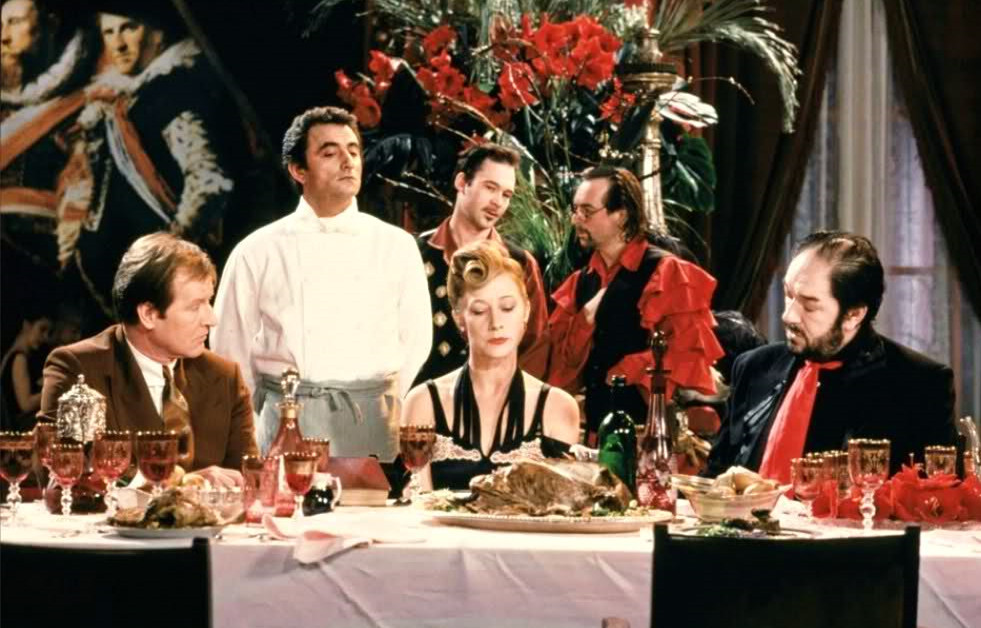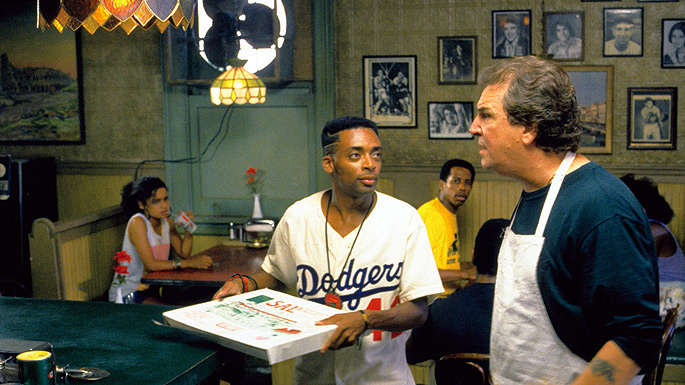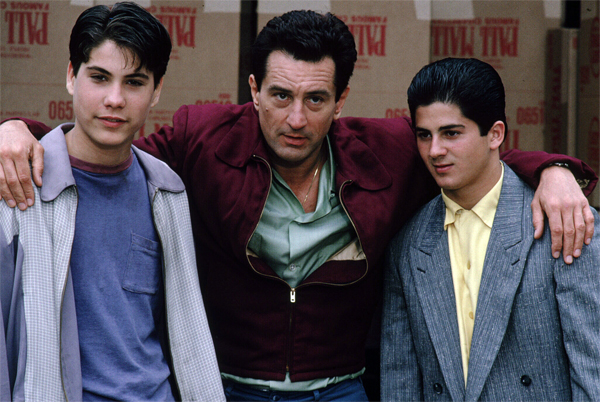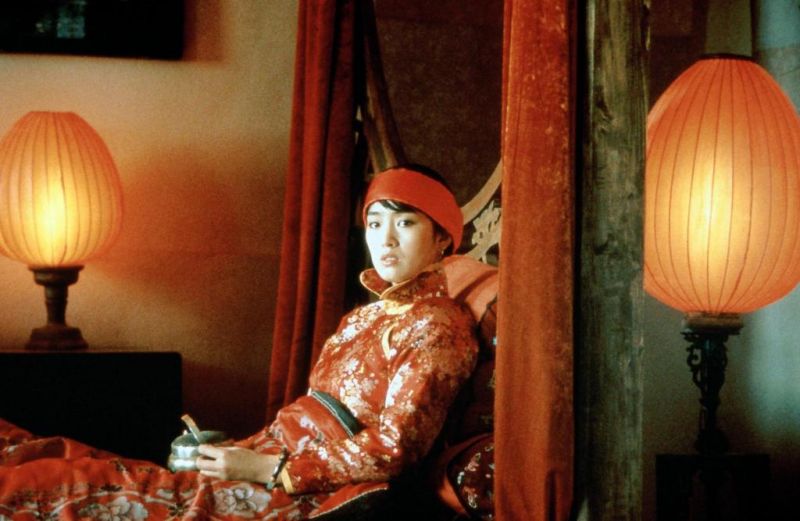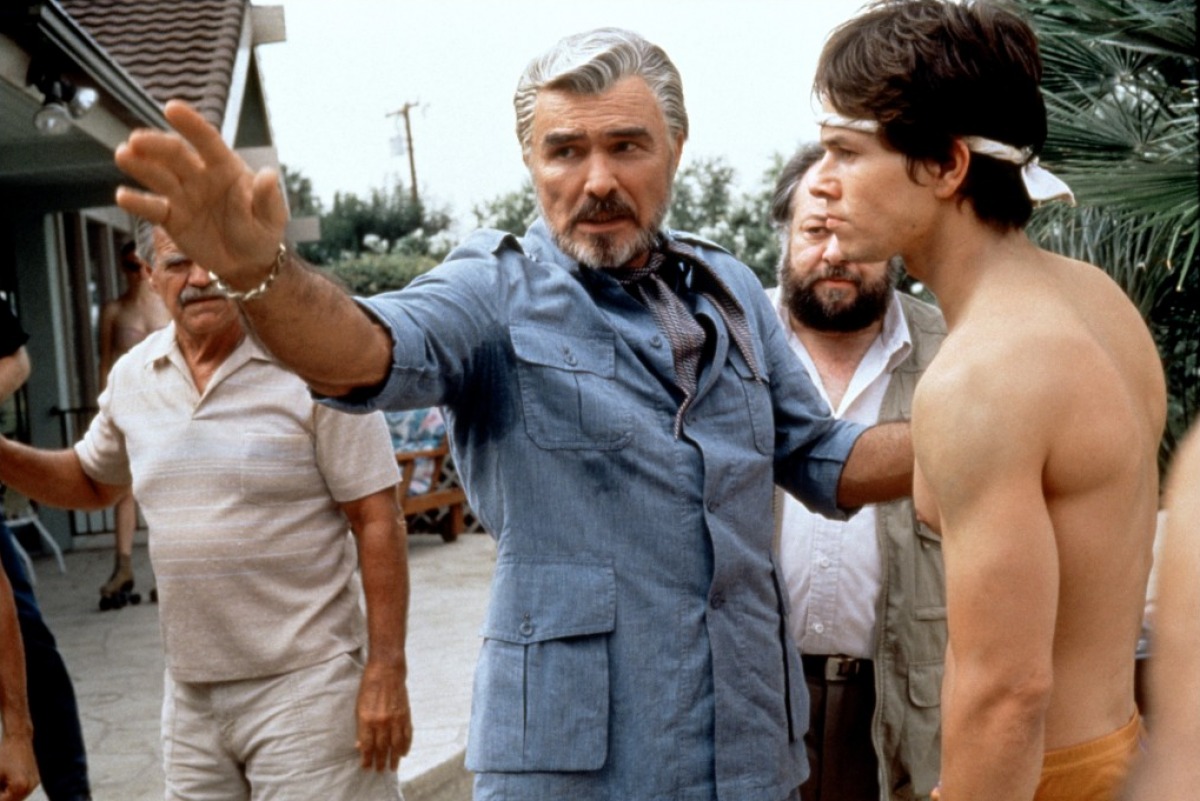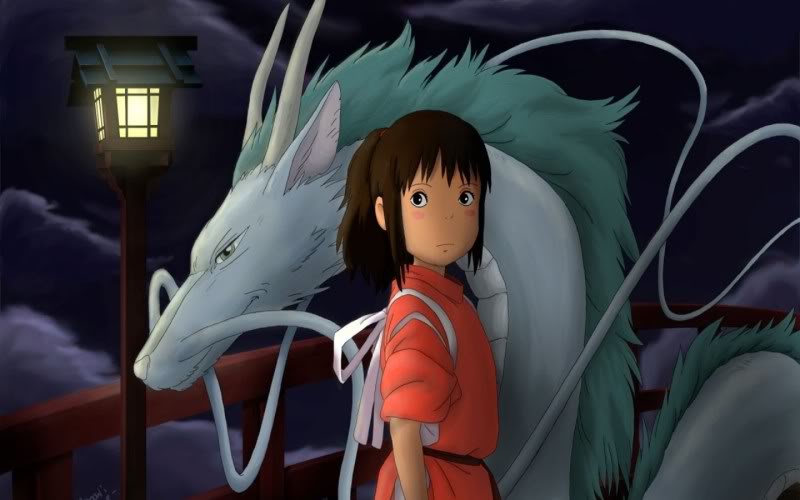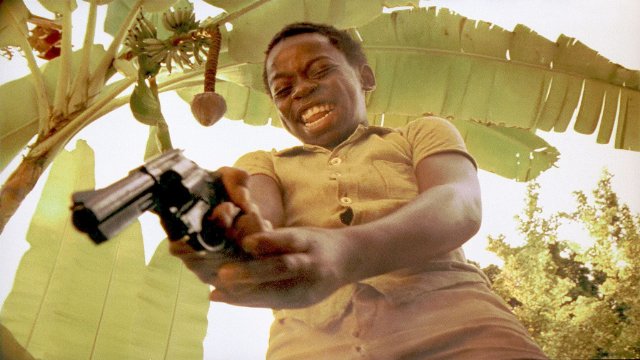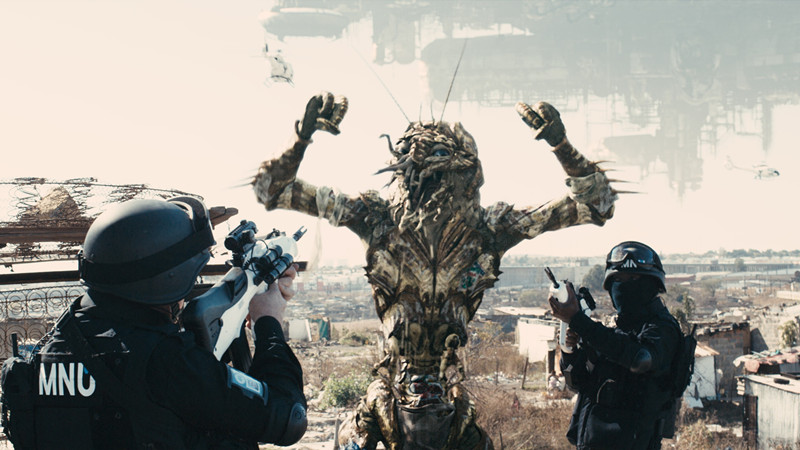9. The Cook, the Thief, His Wife & Her Lover (1989)
Highly stylised and known for its baroque inflections on a Jacobean sensibility, Peter Greenaway’s most acclaimed film is “intelligent and powerful” (Caryn James, The New York Times).
In the film, Michael Gambon plays a rich gangster, Albert Spica, who terrorises the staff of a restaurant, torments fellow guests and reins over his oppressed wife, Georgina (Helen Mirren). When Georgina meets an introspective man, Michael (Alan Howard), she deliberates over cheating on her abusive husband, before beginning a shortlived, passionate affair.
The hierarchy is clear, and Greenaway’s film is “uncompromising […] from beginning to end” (Roger Ebert, Chicago Sun-Times). Albert is the tyrannical ruler, recalcitrant and reckless to the core, at one point stabbing a fork into a guest’s cheek for minor insolence. His sense of authority becomes somewhat diminished when he finds out about his wife’s affair; what follows is an unpleasant series of heightening brutality, “[painting] a cruel portrait for a cruel time” (Hal Hinson, Washington Post).
The film was allegedly a metaphor for Thatcherism, a system of government in 1980s England.
10. Do the Right Thing (1989)
The year was 1989. The summer was hot, and tensions were on the rise. Often touted as director Spike Lee’s greatest film to date, Do the Right Thing is a landmark film, and an “undiluted representation of its creator’s artistic command” (Eric Henderson, Slant Magazine). More than this, the film is a triumph in drawing attention to the racial disparagement and inveterate hatred among communities of numerous races in the United States.
An iconic scene manages to compile several moments of racial vilification, delivered into the camera, transforming the viewer into a “dago”, a “Korean kickboxing son of a bitch”, a “Puerto Rican cocksucker”, a “Jew asshole” and someone else told to “go the fuck back to Africa”.
Lee’s acclaimed film, despite its detractors noting many deceptively facile characters, has retained its popularity after almost thirty years, and the unspoken social hierarchy and stigmas associated with race have been eternally altered. Lee achieved awareness and the subsequent beginnings of a mass rejection of implicit and explicit racism.
11. Goodfellas (1990)
Often recognised as Martin Scorsese’s greatest gangster film, Goodfellas is the true story of Henry Hill (Ray Liotta), who, “as far back as [he] can remember”, has “always wanted to be a gangster.” Playing alongside Robert De Niro and Joe Pesci – the latter winning an Oscar for his performance – Liotta’s character is in good company; together they create sensational cinema through shared exploits as gangsters rising through the ranks in intertwining tales of debauchery and twisted morality.
A film all about the hierarchy in the underworld, Goodfellas peruses the life of a specific strain of organised crime. Tracking along several decades, much like The Godfather, Scorsese’s film most markedly stalks through the achievements and successes of Hill as he gains notoriety and an ever-ascending position in the hierarchy.
Given a full four out of four stars from Roger Ebert, this seminal film gave way to many imitators. The film scored similarly with many reviewers, earning 89/100 on the review site, Metacritic.
12. Raise the Red Lantern (1991)
An aesthetically stunning film that showcases a visual poetry, Zhang Yimou’s 1991 film analyses the social ranking of four wives of a Chinese warlord. Their husband, Master Chen, selects a wife to sleep with each night, which is signalled by the raising of red lanterns outside of the chosen wife’s room. With these lanterns come many privileges and respect; the chosen wife chooses what the wives will eat for dinner, and gets a foot massage, among other things.
A “landmark film of the 1990s” (Jonathan Crowe of Allmovie), Raise the Red Lantern exhibits four women who plot against each other, hopeful for the honour of sleeping with Master Chen, and reaping the rewards. The characters go to extreme lengths to please their husband, which results in the main character, Songlian (Gong Li), faking a pregnancy so that Master Chen will stay with her. A brooding masterpiece, Yimou’s film remains unsurpassed by the rest of his extensive and acclaimed oeuvre.
13. Boogie Nights (1997)
A long tracking shot weaving through the frenetic night air and swooping into a club overlays the vibrant track, “Best of My Love” by The Emotions. Colour surrounds every inch of the screen, every smile tinged with a complacent pride. This dazzling intro, a single shot lasting almost three minutes, introduces us to a foreign habitat not too distant from an ordinary night on the town. The difference: every major player in this scene is an actor, director producer or forlorn acquaintance of the adult film industry.
From Mark Wahlberg’s vulnerability as he traverses personas of timidity and truculence, to Philip Seymour Hoffman’s transformative turn as everyone’s desperate lackey, the film is full of sympathetic and honest characters, despite their flaws. These characters all sit on different echelons, indicative of success and ability. As time passes, the characters fluctuate between the rungs on the ladder that is the pornography industry.
This chronicles the many rises and falls for all involved in the separate hierarchy of pornography. Though one of the leading actors, Burt Reynolds, criticised the film (ironic seeing as it was his only ever Academy Award nominated role), the film was a triumph for director Paul Thomas Anderson, scoring an “average rating” of 8.1/10 on the review site Rotten Tomatoes, garnering 92% positive reviews.
14. Spirited Away (2001)
Hayao Miyazaki’s most acclaimed and well known film, Spirited Away follows Chihiro Ogino (Rumi Hiiragi), a young girl who seems a misfit in her family, with relatively crass and loquacious parents. Chihiro stumbles into the spirit world and must navigate her way through the sinister rules and hierarchy to survive this unfamiliar world.
Chihiro works in a bathhouse under the insatiable and unpredictable witch, Yubaba (Mari Natsuki). Chihiro must conform to the orders of her superiors, whilst pushing boundaries to save her parents who have been transformed into pigs by Yubaba. The hierarchy and idiosyncrasies are initially difficult for Chihiro, but she comes to understand the ways of the bathhouse, losing a sense of innocence along the way, and developing in maturity.
It was the first ever film to win the Academy Award for Best Animated Feature. The film received a full four star rating from Roger Ebert, among other highly supportive critics.
15. City of God (2002)
One of the most successful gangster films ever made, Fernando Meirelles and Katia Lund’s 2002 film from Brazil documents the life of photographer, Buscapé (Alexandre Rodrigues), nicknamed Rocket, as he lives in the slums of Rio. This setting is a region so shrouded in infamy that the directors opted to film in a neighbouring slum for their own safety; one of the directors later commented that he wouldn’t have made the film if he had have known how dangerous and monumental the task would be.
As Rocket witnesses the transitional generations of crime, the film delivers the tale of Lil Zé (Leandro Firmino), a psychopath who beats, murders and rapes his way to the top of the crime world. Rocket’s life revolves around survival, whilst Lil Zé bases his entire existence on commanding the hierarchy as a chief of sorts; Rocket just wants to avoid that lifestyle and ranking altogether.
The film was extremely well received, referred to as “dynamically exciting” by Emmanuel Levy, and scoring an “Average Rating” of 8.3 on Rotten Tomatoes with 90% positive reviews.
16. District 9 (2009)
Neill Blomkamp’s metaphor for xenophobia and segregation has its roots firmly planted in the South African apartheid, managing to simultaneously create a frenetic and exemplary science fiction film.
The film explores “District 9”, which houses aliens who arrived from space several years before. The aliens are mistreated, isolated and subject to unprompted castigation on a regular basis. When a government group decides to relocate the aliens, Wikus van de Merwe (Sharlto Copley), a bureaucrat, is appointed as the leader of this relocation.
Wikus, essentially a vehicle for the audience’s point-of-view, discovers that these aliens – prescribed the disparaging nickname, “prawns” – are worth no less than him and his colleagues. The film proffers an idea that people should have equal value, and the existence of a social hierarchy only engenders discrimination.
The film’s realistic and confronting aura emanates from the use of handheld camera and a found-footage feel. Critics praised the film’s daring attitude, Lisa Schwarzbaum from Entertainment Weekly calling it “cheekily political”. Scoring 81/100 on Metacritic, the film is a highly regarded work of political commentary, as well as “the most exciting science fiction movie to come along in ages” (Sara Vilkomerson, The New York Observer).
Author Bio: Linus Tolliday is a freelance writer and student in Melbourne. He loves movies more than he loves his friends, family and life itself.
